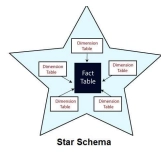Data Ninjas Services
Overview

Data strategy and roadmap development: Consultants help companies define their data strategy, including data governance, data management, and data infrastructure. They assist in developing a roadmap for data-driven decision-making and aligning it with business objectives.
Data analytics and visualization: Expert analysis for large datasets and transforming raw data into meaningful insights. Advanced statistical techniques, machine learning, and data mining to uncover patterns, trends, and correlations.
Predictive analytics and forecasting: Companies often require assistance in building predictive models and forecasting future trends. Predictive modeling techniques and statistical analysis to make accurate predictions about customer behavior, market trends, demand forecasting, and other relevant areas.
Customer analytics: Advise companies in understanding their customers better. This includes customer segmentation, profiling, and behavior analysis. We help identify customer preferences, purchase patterns, and loyalty drivers to optimize marketing strategies, improve customer experience, and increase customer retention.
Risk analytics: Assess and manage various types of risks, such as credit risk, market risk, operational risk, and fraud detection. We employ sophisticated analytics techniques, such as risk modeling, simulation, and anomaly detection, to mitigate risks and improve decision-making in risk-sensitive areas.
Supply chain analytics: Optimize supply chain operations by analyzing and optimizing inventory levels, demand forecasting, logistics, and distribution. Code advanced analytics to identify bottlenecks, streamline processes, reduce costs, and enhance overall supply chain efficiency.
Social media analytics: Expertise extracting insights from social media data to understand brand perception, customer sentiment, and engagement levels. We employ text mining, sentiment analysis, and social network analysis to gauge social media performance, guide marketing strategies, and support reputation management.
Pricing and revenue optimization: Determine optimal pricing strategies by analyzing market dynamics, customer behavior, and competitor pricing. Create advanced analytics to identify price elasticity, demand patterns, and revenue optimization opportunities.
Data-driven decision-making and strategy: Provide guidance on leveraging data and analytics to drive decision-making processes across different business functions. We assist in formulating data-driven strategies, developing KPIs, and establishing performance measurement frameworks.
Advise and coding for marketing departments with multi-touch attribution services. These services focus on determining the value of each marketing touchpoint or interaction that a customer has with a brand throughout their journey. By understanding the effectiveness of their marketing efforts, companies can make informed decisions and allocate resources more efficiently. Consultants provide expertise in various aspects of multi-touch attribution, including:
Attribution modeling: Consultants help companies choose and implement appropriate attribution models based on their marketing goals and available data. They assess different models, such as first-touch, last-touch, linear, time decay, position-based, or data-driven models, to determine the most suitable approach for the company's specific needs.
Data integration and tracking setup: Consultants assist in integrating data from diverse marketing channels, including social media, search engine marketing, display advertising, email campaigns, and offline channels. They ensure that tracking mechanisms are properly set up across these channels to capture user interactions and touchpoints accurately.
By leveraging the expertise of consultants in multi-touch attribution, companies can gain valuable insights into the performance of their marketing activities, enhance decision-making, and optimize their marketing strategies for improved results.

Please see Power BI page, dataninjasllc.com/power-bi/
Data modeling services, which involve designing and implementing data models to structure and organize your data effectively.
Conceptual and logical data modeling: Advise companies in developing conceptual and logical data models that represent the high-level business concepts and relationships. Work closely with stakeholders to understand the organization's data requirements and translate them into a structured data model. This helps in aligning the data model with the business objectives and ensuring data consistency and integrity.
Physical data modeling: Translate logical data models into physical data models that are specific to the target database or system. Consider factors such as database technologies, performance considerations, and scalability while designing the physical data model. This ensures efficient storage, retrieval, and manipulation of data in the underlying system.
Database design and optimization: Provide guidance on designing and optimizing databases based on the data model. Assist in selecting appropriate database technologies, defining table structures, establishing relationships, and creating indexes to improve query performance and data retrieval efficiency.
Data integration and interoperability: Support companies in designing data models that facilitate seamless data integration and interoperability across different systems, applications, or databases. Ensure that data can flow smoothly between systems and that data elements are mapped appropriately for efficient data exchange.
Data governance and metadata management: Assist companies in establishing data governance frameworks and metadata management strategies. Define data standards, naming conventions, and data documentation practices to ensure consistency, quality, and usability of data models.
Data model validation and quality assurance: Perform data model validation and quality assurance checks to ensure that the data model accurately represents the business requirements and aligns with industry best practices. Review and validate the data model against defined standards, perform data integrity checks, and collaborate with stakeholders to resolve any discrepancies or inconsistencies.
Data model documentation and training: Document the data model, including its structure, relationships, and definitions. They ensure that the documentation is comprehensive, accessible, and understandable for future reference and training purposes. Conduct training sessions to educate stakeholders on the data model and its usage.

We are expert developers of online reports and dashboards. These services involve creating interactive and visually appealing reports and dashboards that enable data-driven decision-making and enhance the accessibility of critical information. Specialized knowledge and skills in data visualization, dashboard design, and report development. Some of the online report and dashboard services include:
Report and dashboard design: Understand your reporting needs and design customized reports and dashboards that align with their specific requirements. Consider factors such as data sources, key performance indicators (KPIs), and user preferences to create intuitive and visually engaging layouts.
Data visualization and storytelling: Experts in data visualization techniques to present complex data in a clear and impactful manner. Customize relevant charts, graphs, infographics, and other visual elements to communicate insights effectively and facilitate data-driven storytelling.
Interactive functionality: Develop online reports and dashboards with interactive features that allow users to explore and drill down into data. We implement filters, drop-down menus, and interactive elements to enable users to customize their views and gain deeper insights from the data.
Integration with data sources: Integrating online reports and dashboards with various data sources, including databases, data warehouses, and external APIs. Ensure seamless data connectivity and real-time or near-real-time updates to provide up-to-date information to users.
Performance optimization: Optimize the performance of online reports and dashboards to ensure fast loading times and smooth user experience, even when dealing with large datasets. Employ techniques such as data aggregation, caching, and query optimization to enhance performance and responsiveness.
Security and access control: Implement robust security measures and access controls for online reports and dashboards. We ensure that sensitive or confidential information is protected and that the right users have appropriate access privileges based on their roles and responsibilities.
Training and support: Provide training sessions or workshops to educate users on how to effectively use and interpret the online reports and dashboards. Ongoing support and troubleshooting to address any technical issues and assist users in maximizing the value of the reporting tools.
Measurement strategy services involve developing comprehensive frameworks and methodologies to measure the effectiveness and impact of their business activities. These services help companies establish key performance indicators (KPIs), define measurement goals, and implement strategies to monitor and evaluate their performance. Bring specialized expertise in measurement and analytics, enabling companies to make data-driven decisions and optimize their operations. Some of the measurement strategy services that companies seek consultants for include:
KPI development: Identify and define meaningful KPIs that align with their business objectives. Advise selecting the most relevant metrics for tracking performance and guide the development of KPI frameworks that provide actionable insights.
Data collection and tracking: Establish data collection mechanisms and tracking systems to gather relevant data for measuring performance. We help companies define data sources, set up data collection tools, and ensure data accuracy and integrity throughout the measurement process.
Data analysis and interpretation.
Performance measurement frameworks: Develop performance measurement frameworks that outline how various metrics and KPIs will be tracked, reported, and analyzed. Assist in establishing data governance and data management processes to ensure consistency, quality, and reliability of performance data.
Benchmarking and industry analysis: Advise companies benchmark their performance against industry standards and competitors. Conduct comparative analysis and provide insights into industry trends, best practices, and areas for improvement.
- Continuous improvement and optimization: Consult companies in continuously evaluating and refining their measurement strategies. Conduct performance reviews, identify areas of improvement, and recommend strategies to optimize performance based on data-driven insights.
Overview
1. Presentation to business group and all involved
- Collaborator - (Often is the business unit leader)
- Business unit members
1. REPORT REQUIREMENTS
- Measurement strategy / KPIs
- Testing logic given from business leader
- does it meet goal
- Want to avoid re-engineering
- Purpose is design a shell of a report to show
primary logic
- Does it meet requirements of
business unit - What can be automated
- Static data to isolate revi
- Purpose is to apply all logic and show all
visuals. In this step, the report will really
take shape - Finish report’s data m
- Automation done
- Users encouraged to stress test report
- QC done
- Power BI

